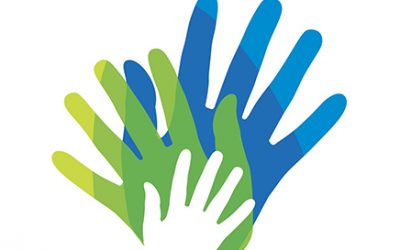by Dr. Angela Murray and Dr. Ann Epstein
We have been involved in Montessori research for over two decades and welcome this opportunity to summarize some recent developments for Tomorrow’s Childs.
We both contribute to the recently published Bloomsbury Handbook of Montessori Education, a comprehensive reference containing an entire section on the “Science of Montessori Education.” With 62 chapters, more than 600 pages, and almost 100 authors from more than 25 countries, we know the handbook is not something most folks will read cover to cover. In this issue (and subsequent articles), we would like to highlight some of the research it contains.
Let’s look at some of the questions we often hear.

Q: Does Montessori education work?
A: The most common question we get as Montessori researchers is, “Does it work?” While giving a one-word answer is impossible, evidence supporting Montessori education continues to grow. A chapter in the Handbook discusses the challenges of conducting rigorous research on Montessori education, summarizes global evidence, and concludes that current studies largely demonstrate Montessori’s efficacy in promoting academic outcomes, executive function, and socio-emotional skills (Manship, 2023).
Two recent articles that formally reviewed current research support these findings. One article found Montessori education more effective in developing cognitive abilities, social skills, creativity, motor skills, and academic achievement (Demangeon et al., 2023). Another concluded that Montessori education produces more positive results for general academic ability (math and language), inner experience of school, executive function, and creativity (Randolph et al., 2023). One of the authors concludes, “Montessori education has a meaningful and positive impact on child outcomes, both academic and non-academic, relative to outcomes seen when using traditional educational methods” (p. 2).
Q: How do Montessori teachers track progress?
A: Assessment is a term that many Montessorians shy away from because they associate it with standardized testing. However, parents and policy-makers often ask how Montessori teachers know that their students are learning. The Handbook’s authors describe Montessori assessment as familiar to outsiders, saying it is student-centered, intertwined with instruction, based on observation, and informs a holistic picture of development carefully documented by teachers (Zoll et al., 2023). To keep all students optimally challenged, Montessori educators engage in this kind of classroom assessment daily to ensure they know where each of their students is within the individualized curriculum.

Q: Does Montessori education support social-emotional learning and other developmental outcomes?
A: Researchers are examining Montessori principles associated with nurturing social (or socio) emotional development and learning. Skills include being aware of one’s own emotions, managing one’s emotions (especially when they are strong), understanding others’ emotions, demonstrating kindness, and offering support when others are experiencing strong emotions (Crowder, et al., 2019). In the handbook chapter on the efficacy of Montessori pedagogy, Manship (2023) reported that young children in Montessori programs scored higher on social problem-solving tasks, demonstrated more positive playground behaviors, and had an increased ability to understand the perspectives of others. Manship also cited research findings that Montessori-educated children expressed greater creativity than same-age peers in traditional preschool settings in both the U.S. and France. Other areas where positive impacts of Montessori education were evident include social maturity and reduced anxiety in Elementary students. Manship concludes, “Overall, the evidence that the Montessori method is effective at supporting social-emotional and other outcomes supportive of learning is notably consistent” (p. 214).
Q: Is Montessori education outdated?
A: Since Montessori education has been around for more than 100 years, skeptics often assume it must be outdated. On the contrary, modern science is discovering new ways to demonstrate how and why the Montessori approach continues to serve children so well today.
Neuroscience. Two European authors summarized their neuroscience work in Handbook chapters. Fabri (2023) connects current neuroscience to Montessori’s ideas about critical periods, the importance of the environment, the role of emotional stimulation, the process of language acquisition, and the impact of movement on learning. In her chapter, Denervaud (2023) describes how she uses measures of behavior, brain structures, and neural responses to show that Montessori students are better able to detect and self-correct errors at an early age. She concludes that Montessori students have a healthier relationship with making mistakes when compared to students from traditional schools, likely because the approach encourages learning from errors rather than avoiding them.
Executive Functions. Cognitive science and quantitative psychology are other modern fields offering evidence that Montessori education is relevant today. Specifically, Mallett (2023) describes how Montessori education supports the development of executive functions by offering students regular opportunities to practice executive functions, scaffolding executive function skills, having a holistic focus that includes socio-emotional learning, and offering a differentiated curriculum with significant student choice and active learning experiences.
Intrinsic Motivation. The handbook chapter authored by Lillard and her graduate student Basargekar (2023) explains how interrelated elements of Montessori practices reflect current theories about the development of intrinsic motivation. Recommendations for fostering intrinsic motivation are organized around themes that are clearly found in Montessori classrooms, including autonomy (through student choice, classroom order, and teacher guidance), competence (through classroom organization, emphasizing embodied cognition, and offering interesting work), and relatedness (through teacher warmth, offering interconnected work, including three-year age groupings, and fostering an atmosphere of security and interrelatedness) (Basargekar & Lillard, 2023).
Q: What other research will be of interest to practitioners?
A: Montessori research continues to grow and address current societal issues and educational challenges. This section highlights recent articles of relevance to practitioners published in the Journal of Montessori Research. The journal is a publication of the American Montessori Society, launched in 2015 with support from the University of Kansas Libraries. Among the 60 blind peer-reviewed articles published to date, we discuss several that address the current state of Montessori education and issues of diversity, equity, inclusion, and belonging (DEIB) in the context of Montessori principles.
State of the Field, a comprehensive international census conducted in 2022, concluded that 15,763 Montessori schools operate in 154 countries today, with approximately 9 percent being government-funded (Debs et al., 2022).
In addition to obtaining a count of schools, the global study also undertook the ambitious task of identifying components of Montessori fidelity with broad international acceptance. These six elements emerged as essential aspects of Montessori education: clear evidence of the Montessori philosophy, mixed ages, trained teachers, materials, freedom of choice, and uninterrupted work blocks.
As the teacher shortage grows more alarming, supporting early-career teachers is essential. An elementary coaching tool designed by Murray, Daoust, and Mallett (2021) was reviewed by eighteen highly experienced AMS and AMI teacher educators. Teaching components identified as essential for high-quality Montessori instruction were organized into five areas: classroom leadership; philosophy and methods; presentations; the social/emotional environment; and professional behavior. The review resulted in a publicly available coaching tool containing 81 specific items that can serve as the basis of reflection by early career teachers with their mentors or supervising teachers. The authors state that the tool is designed for professional development, not performance evaluation.
Diversity, Equity, Inclusion, and Belonging, Lillard, Tong, and Bray (2023) continued ongoing investigations of racial and ethnic parity. Their study of 134 non-white and white preschoolers revealed that non-white children in Montessori settings scored significantly higher on indicators of executive function and social cognition, as well as early academics (literacy and math concepts), than their non-white peers in “business-as-usual” preschool programs, suggesting Montessori education’s potential to close the gap for historically marginalized children.
Public school teachers in Hawaii embraced the cosmic nature of Montessori learning to honor indigenous cultural components while addressing state-mandated Western science standards. A common holistic and relational worldview, beliefs based on observable facts and intuition, and recognition of the spiritual and scientific world working together emerged as themes in this qualitative study by Schonleber (2021). Teachers and school leaders purposefully incorporated Montessori principles into their teaching practices over a planned three year period. They noted the impact of timelines, emphasis on the natural world, and the Great Lessons in achieving their goal of creating a culturally restorative, decolonized science program.
Survey responses from 80 U.S. Montessori school heads regarding the inclusion of children with disabilities (CWD) confirm language and speech as the most frequently occurring disability among both infant/toddler and Children’s House learners (Long et al., 2022). Autism and attention deficit hyperactivity disorder were the next most frequently occurring disabilities, with emotional disorders least among infants and toddlers and motor disabilities least for primary children. CWD comprise 3.5 percent of infant/toddler communities and 8.5 percent of primary classrooms.
Teachers stated that while they feel fairly confident addressing children with disabilities’ needs, additional professional development regarding effective interventions is needed.

Q: Where does Montessori research go from here?
A: While it is exciting to see the progress in Montessori research over the past 20 years, more work remains. Evidence supports Montessori education’s effectiveness, but more large and robust studies are needed that will require significant funding.
We also need studies that will allow us to understand and communicate the mechanisms contributing to what is working.
Other significant challenges are emerging that require additional research in Montessori contexts, including understanding the needs of 21st-century families, development, and education in the digital age, navigating a plurilingual society, and many others.
Conversations about how we, as a society, address the challenges of educating today’s children are beginning to open the door to alternative approaches like Montessori education.
In a provocative piece entitled, “Why the Time is Ripe for an Education Revolution,” Angeline Lillard (2023) makes the case that it is time for a paradigm shift “away from teacher-text-centered learning and to highly structured instructional environments that support self-construction through limited free choice” (p. 1).
These conversations and the growing number of studies supporting Montessori education offer encouragement that Montessori educators will have increasing opportunities to serve a larger and more diverse population of children in the future.

The challenge will be meeting the demand for high-quality, experienced, and dedicated Montessori educators.
To learn more, check out the articles in the reference list and the research chapters in the Bloomsbury Handbook of Montessori Education.
The Handbook chapters referenced in this article and others in the “Science of Montessori Education” section are listed below.
Chapters numbers and authors from the “Science of Montessori Education Section” of the Bloomsbury Handbook of Montessori Education edited by A. K. Murray; E.Tebano Alquis; M.K. McKenna & M. Debs (2023) include the following :
18. “Revisiting the Foundations of Montessori Education from a Modern Neuroscience Perspective” — Mara Fabri
19. “A Logic Model for Informing Montessori Research” — Brooke Culclasure and Sally Morris Cote
20. “Fidelity Issues in Montessori Research” — Angela K. Murray and Carolyn Daoust
21. “Evaluating the Efficacy of Montessori Education” — Karen Manship
22. “Assessment in Montessori Education” — Susan Zoll, Laura Saylor, and Arya Ansari
23. “Neuroscience of Error Monitoring in the Montessori Context” — Solange Denervaud
24. “A Critical Consideration of Montessori Education and Its Relation to Cognitive Science and Concrete-to-Abstract Thinking” — Elida V. Laski and Muanjing Julia Wang
25. “Executive Functions in Montessori Education” — Jan Mallett
26. “Motivation and Self-Determination in Montessori Education” — Abha Basargekar and Angeline S. Lillard
27. “Montessori Education, Optimal Experience, and Flow” – Kevin Rathunde
REFERENCES
Crowder, M. K., Gordon, R. A., Brown, R.D., Davidson, L.A. & Domitrovich, C.D.(2019). Linking social emotional learning standards to the WCSD social-emotional competency assessment: A Rasch approach. School Psychology, 34(3), 281–295. https://doi.org/10.1037/spq0000308
Debs, M., deBrouwer, J., Murray, A., Lawrence, L., Tyne, M., & von der Wehl, C. (2022). Global diffusion of Montessori schools: A report from the 2022 global Montessori census. Journal of Montessori Research, 8(2), 1 – 11. https://doi.org/10.17161/jomr.v8i2.18675
Demangeon, A., Claudel-Valentin, S., Aubry, A., & Tazouti, Y. (2023). A Meta-Analysis of the Effects of Montessori Education on Five Fields of Development and Learning in Preschool and School-Age Children. Contemporary Educational Psychology, 102182. https://doi.org/10.1016/j. cedpsych.2023.102182
Lillard, A. S. (2023). Why the time is ripe for an education revolution. Frontiers in Developmental Psychology, 1, 1177576. https://doi.org/10.3389/fdpys.2023.1177576
Lillard, A., Tong, X. & Bray, P.M. (2023). Seeking racial and ethnic parity in preschool outcomes: An exploratory study of public Montessori schools vs. business-as-usual schools. Journal of Montessori Research, 9(1), 22 – 36. https://doi. org/10.17161/jomr.v9i1.19540
Long, T., Ferranti, N., & Westerman, C. (2022). Children with Disabilities Attending Montessori Programs in the United States. Journal of Montessori Research, 8(2), 16-32. https://doi.org/10.17161/jomr.v8i2.18639
Murray, A., Daoust, C., & Mallett, J. (2021). Designing the Montessori coaching tool elementary rubric for early-career professional development. Journal of Montessori Research, 7(2), 25 – 67. https://doi.org/10.17161/jomr.v7i2.15866
Randolph, J. J., Bryson, A., Menon, L., Henderson, D. K., Kureethara Manuel, A., Michaels, S., Rosenstein, d. l. w., McPherson, W., O’Grady, R., & Lillard, A. S. (2023). Montessori education’s impact on academic and nonacademic outcomes: A systematic review. Campbell Systematic Reviews, 19, e1330. https://doi.org/10.1002/cl2.1330
Schonleber, N. (2021). Using the cosmic curriculum of Dr. Montessori toward the development of a place-based indigenous science program. Journal of Montessori Research, 7(2), 12 – 24. https://doi.org/10.17161/jomr.v7i2.15763

Angela Murray is an associate research professor and graduate lecturer at the University of Kansas (KU), teaching courses in research methods and statistics. She is the director of the KU Center for Learner Agency Research and Action (CLARA), founding chair of the AERA Montessori Special Interest Group, founding editor of the Journal of Montessori Research, and lead editor for the Bloomsbury Handbook of Montessori Education. Dr. Murray earned her doctorate from KU in psychology and research in education, with a minor in cultural anthropology and was awarded honors for her dissertation, “Public Perceptions of Montessori Education.” She has published extensively on Montessori education and has presented on learner agency fostering pedagogies at numerous national and international conferences
Ann Epstein is a Professor of Early Childhood Education at the University of Wisconsin/La Crosse, where she directs the undergraduate ECE program. She teaches courses addressing Early Childhood language & literacy, special education, and kindergarten curriculum and assessment. Ann’s research interests include support for young children with disabilities and interdisciplinary teaching. Ann was a Montessori teacher with 3–6-year-olds before completing her doctoral studies in Early Childhood special education. She is the editor of Montessori Inclusion – Strategies and Stories of Support for Learners with Exceptionalities (2020) published by Parent/Child Press.







